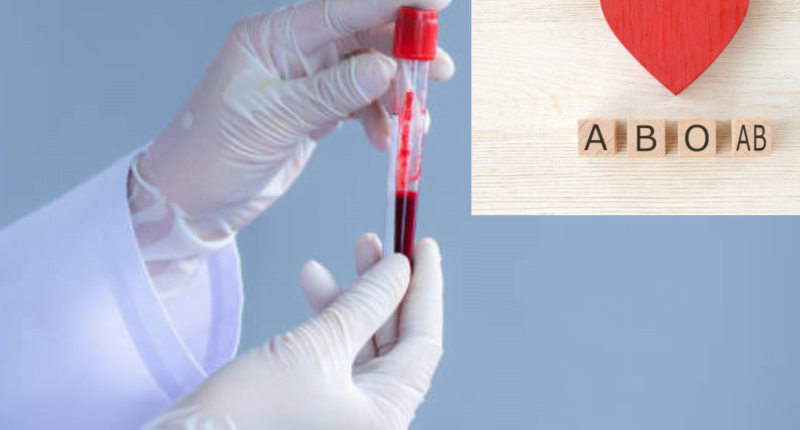10 Blood Type O skin problems to note – Blood type O individuals are known to be resilient and strong. However, they may also be susceptible to certain health issues, including skin problems. Skin is the largest organ in the human body and plays a crucial role in protecting internal organs. Therefore, it is essential to take care of your skin and address any skin problems promptly. Let’s dive into the top 10 skin problems faced by blood type O individuals.
1. Acne
Acne is a common skin problem that affects millions of people worldwide. However, individuals with blood type O are more prone to acne due to their genetic makeup. Blood type O individuals have higher levels of androgens, which stimulate the sebaceous glands and lead to excess oil production, causing acne. To treat acne, it is essential to maintain good hygiene, avoid oily and greasy foods, and use acne-fighting products containing salicylic acid or benzoyl peroxide. Also read | Adult Acne: How Is It Different From Teenage Zits?
2. Eczema
Eczema is a chronic skin condition that causes red, itchy, and inflamed skin. Blood type O individuals are prone to eczema due to their immune system’s hyperactivity, leading to an overreaction to irritants and allergens. To manage eczema, it is essential to keep the skin moisturized, avoid triggers such as harsh soaps and detergents, and use topical corticosteroids to reduce inflammation.
3. Psoriasis
Psoriasis is an autoimmune disease that causes skin cells to grow rapidly, resulting in red, scaly patches on the skin. Blood type O individuals are more susceptible to psoriasis due to their immune system’s overactivity. To manage psoriasis, it is essential to avoid triggers such as stress, alcohol, and smoking, use medicated creams containing salicylic acid or coal tar, and expose the affected skin to sunlight for short periods.
4. Rosacea
Rosacea is a chronic skin condition that causes facial redness, swelling, and acne-like bumps. Blood type O individuals are prone to rosacea due to their genetic makeup and immune system’s hyperactivity. To manage rosacea, it is essential to avoid triggers such as spicy foods, alcohol, and stress, use gentle skincare products, and apply topical medications containing metronidazole or azelaic acid.
5. Melasma
Melasma is a skin condition that causes dark, patchy areas on the skin, primarily on the face. Blood type O individuals are prone to melasma due to their genetic makeup and hormonal imbalances. To manage melasma, it is essential to avoid triggers such as sun exposure and hormonal changes, use sunscreen with an SPF of at least 30, and use skin-lightening agents containing hydroquinone or kojic acid.
6. Vitiligo
Vitiligo is a skin condition that causes white patches on the skin due to the loss of melanin. Blood type O individuals are more prone to vitiligo due to their genetic makeup and autoimmune disorders. To manage vitiligo, it is essential to avoid triggers such as sunburn, use sunscreen with an SPF of at least 30, and use topical corticosteroids or calcineurin inhibitors to reduce inflammation.
7. Hives
Hives are a skin condition that causes itchy, red, and raised bumps on the skin. Blood type O individuals may be prone to hives due to their immune system’s hyperactivity and allergic reactions. To manage hives, it is essential to identify and avoid triggers such as certain foods or medications, use antihistamines to reduce itching and swelling, and apply cold compresses to the affected area.
8. Dermatitis
Dermatitis is a skin condition that causes red, itchy, and inflamed skin. Blood type O individuals may be prone to dermatitis due to their genetic makeup and immune system’s hyperactivity. To manage dermatitis, it is essential to identify and avoid triggers such as irritants or allergens, use moisturizers to keep the skin hydrated, and apply topical corticosteroids or calcineurin inhibitors to reduce inflammation.
9. Skin Infections
Blood type O individuals may be more susceptible to skin infections such as cellulitis or impetigo due to their immune system’s hyperactivity and genetic makeup. To manage skin infections, it is essential to keep the skin clean and dry, avoid sharing personal items such as towels or razors, and use antibiotics to treat the infection.
10. Wrinkles
Wrinkles are a natural part of aging, but blood type O individuals may be more prone to premature wrinkles due to their genetic makeup and lifestyle factors such as smoking or sun exposure. To manage wrinkles, it is essential to maintain a healthy lifestyle, use sunscreen with an SPF of at least 30, and use anti-aging skincare products containing retinoids or antioxidants.
Conclusion
In conclusion, blood type O individuals may be prone to certain skin problems due to their genetic makeup and lifestyle factors. It is essential to identify and manage these skin problems promptly to prevent further complications. By following proper skincare practices, avoiding triggers, and using appropriate treatments, blood type O individuals can maintain healthy and beautiful skin.
FAQs – Frequently Asked Questions
A: While blood type O individuals may have a slightly lower risk of skin cancer than other blood types, they should still take precautions to protect their skin from UV damage.
A: Yes, blood type O individuals can develop allergies at any point in their life, but they may be more prone to allergic reactions due to their immune system’s hyperactivity.
A: Yes, certain foods such as dairy, sugar, and gluten may exacerbate skin problems in blood type O individuals. It is essential to maintain a healthy diet and avoid trigger foods.
A: While natural remedies such as tea tree oil or aloe vera may provide temporary relief for some skin problems, it is essential to consult a dermatologist for proper diagnosis and treatment.
A: Yes, stress can trigger or worsen skin problems in blood type O individuals. It is essential to manage stress through relaxation techniques such as meditation or yoga.
Copyright © 2022 Soundhealthandlastingwealth.









